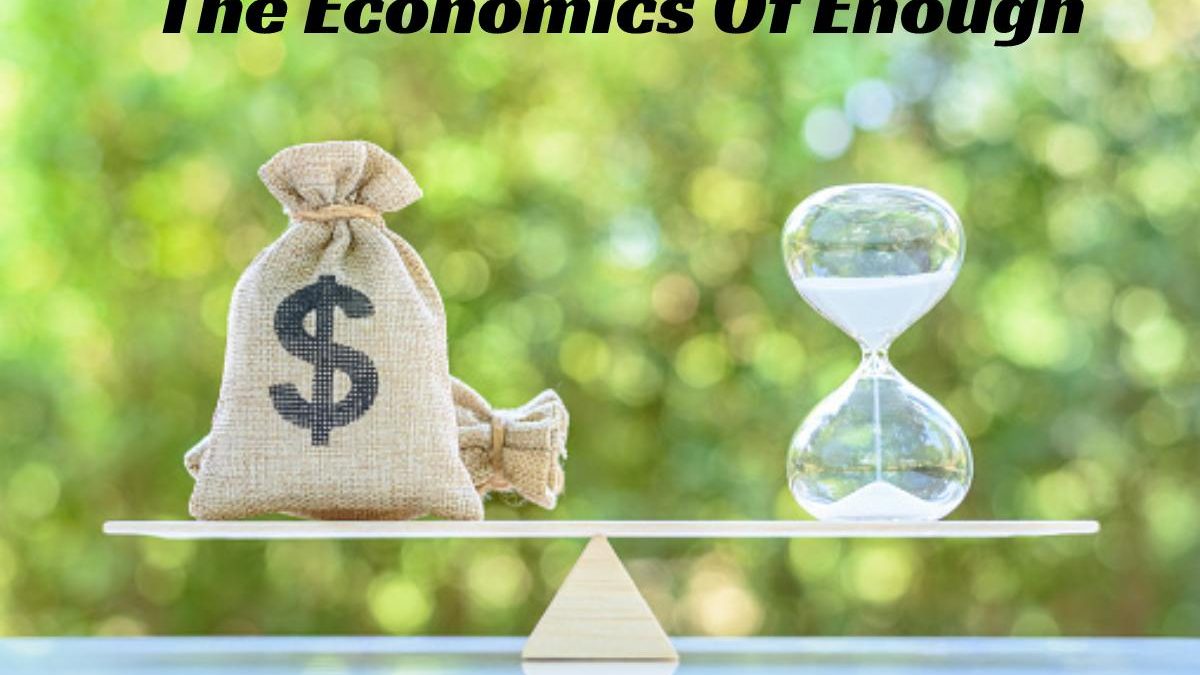Table of Contents
What Is The Economic Concept of Enough?
The Economics Of Enough, No matter what you call it, the key idea is to develop economic policies that improve the quality of life without expanding consumption. These policies include methods to reduce resource use, limit inequality, fix the financial system, create meaningful jobs, and change the way we measure progress.
The World’s Major Economies are Facing Not Just One,
But many crises. The financial collapse may not be over, climate change threatens significant global disruption, economic inequality has reached extremes not seen in a century, and government and businesses remain widely mistrusted. At the same time, many people lament modern life’s consumerism and social corrosion. What these crises have in common, Diane Coyle argues, is a reckless disregard for the future, especially in how the economy remains running. So how can we achieve the financial growth we need today without sacrificing a decent future for our children, society, and planet?
How Can We Realize What Coyle Calls “The Economy of Enough”?
Directing the economy tomorrow and today will require a wide range of policy changes. The top priority must remain to ensure that we get an accurate picture of long-term economic prospects, with the development of official statistics on national wealth in its broadest sense, including natural and human resources. It will be necessary to encourage saving and investment above current consumption. Above all, governments will need to engage citizens in the process of debating the difficult choices ahead and rebuilding a shared commitment to the future of our societies.
Creating a Sustainable Economy,
Having enough to be happy without cheating in the future will not be easy. But The Economics of Enough starts a critical conversation about how we can get started and the first steps we need to take.
What Is The Economy?
Stock exchange board.
Economics is the study of shortage and its implications for the use of resources, the production of goods and services, the growth of output and welfare over time, and a wide variety of other complex topics of vital interest. For society.
The Economy is More Than Numbers
Economics is a social science with interests in many other fields, including political science, geography, mathematics, sociology, psychology, engineering, law, medicine, and business. However, the central quest of economics remains to determine the most logical and practical use of resources to achieve personal and social goals. Production and employment, asset and savings, health, money and the banking system, government policies on taxes and spending, international trade, industrial organization and regulation, urbanization, environmental issues, and legal issues (such as the design and enforcement of property rights ), are just a sample of the concerns at the heart of economic science.
Types Of Economists
American Economic Association
Microeconomics studies the insinuations of individual human action and remains key to a person’s financial health. Personal resources are also scarce! One can always use another dollar, an hour, or a new skill. Achieving the adequate allocation of one’s resources is crucial, and studying allocation problems improves the ability to make both daily and lifelong decisions. Some common everyday financial questions include: Should I pay cash, borrow or sign a lease to get that new car? Should I take out a home fairness loan or invest in the stock market? Should I open a 401K plan now or wait until next year? Economists understand how to make these choices in their own lives and can advise others personally or professionally.

